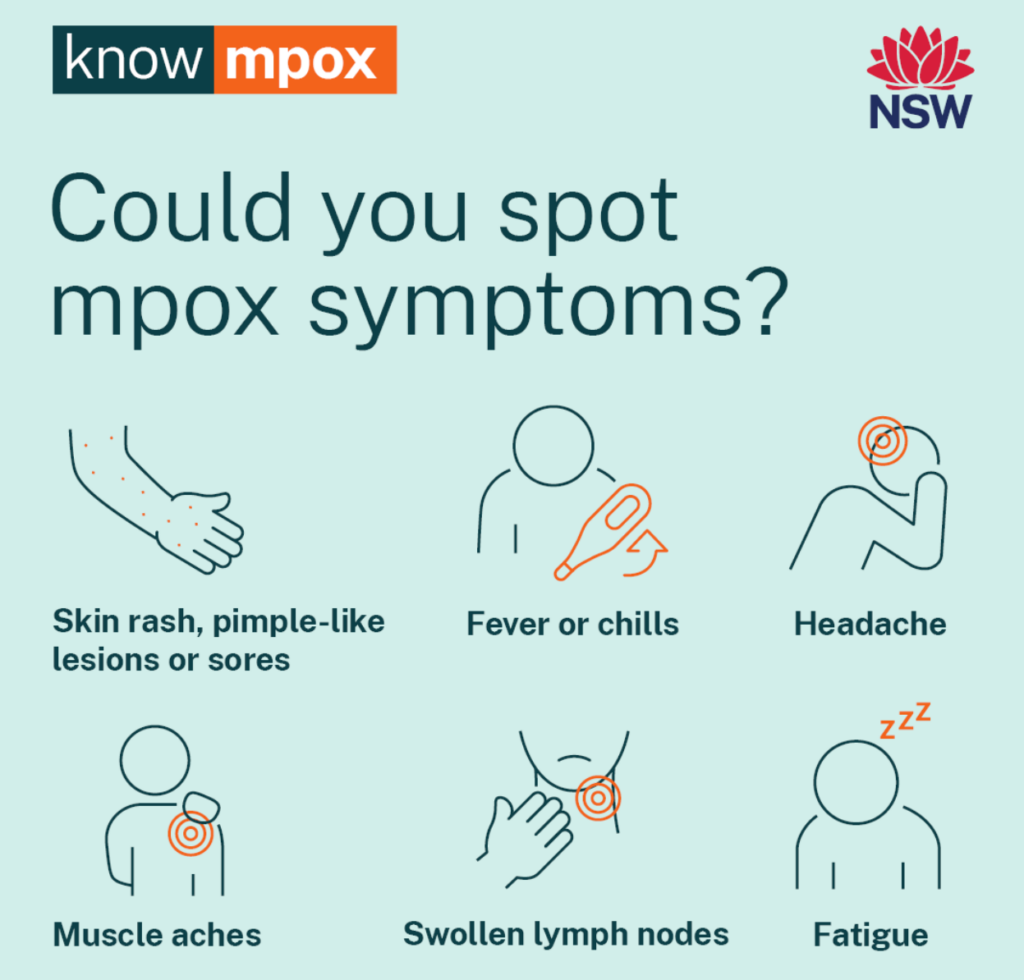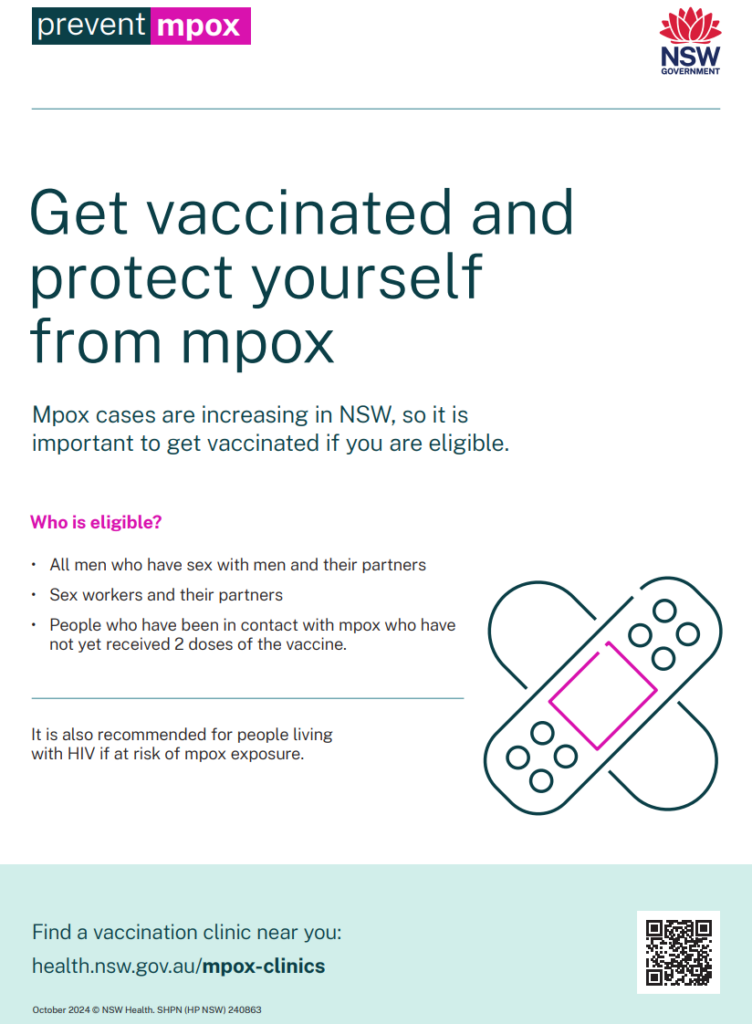Mpox (formerly known as monkeypox) is an infection caused by the monkeypox virus. In NSW, the individuals at the highest risk of mpox are men who have sex with men, particularly those engaging in sexual activity overseas or with people who have recently returned from abroad.
Symptoms of mpox typically appear 7-14 days after exposure to the virus but can emerge anywhere from a few days to several weeks later. Common symptoms include:
- Rashes (pimple-like lesions or sores) in the genital area or on other parts of the body.
- Discomfort and pain in the anus.
- Discharge from the anus.
Some individuals may also experience additional symptoms such as fever, fatigue, headaches, muscle and back aches, chills, swollen lymph nodes, and ulcers, lesions, or sores in the mouth.
How do you get mpox?
Mpox can spread through:
- Direct skin-to-skin contact with individuals who have mpox rashes, blisters, or sores.
- Unprotected sexual activity (including semen and other bodily fluids).
- Contact with contaminated objects, such as bedding or clothing.
- Inhaling air droplets exhaled by someone with mpox (this is very rare).
How do you prevent mpox?
There is a vaccine available to protect against mpox called JYNNEOS. It is free for everyone (including international students and individuals without Medicare) and is recommended in NSW for eligible groups. To check your eligibility for the free vaccine, call the Sexual Health Infolink on 1800 451 624.
You can also protect yourself from mpox by:
- Avoiding close contact with individuals who have mpox or exhibit mpox symptoms.
- Steering clear of contaminated materials, such as bedding or towels.
- Practising good hand hygiene.
What are the tests for mpox?
Mpox is tested by taking a sample (a swab) from a blister or scab of your rash. This sample is then sent to a laboratory for testing. You may be advised to stay home and isolate until your doctor or nurse provides your results.
Testing is free and confidential at NSW sexual health clinics. You can get tested for mpox at your local doctor’s office or at a sexual health clinic. Remember, mpox can only be tested if you have active symptoms like a blister or rash. For more information and to find the nearest service, you can call the Sexual Health Infolink on 1800 451 624.
If your test result is positive for mpox, it’s important to inform your partners so they can also get tested and treated. If you need assistance contacting your partners, ask your doctor or call the Sexual Health Infolink on 1800 451 624.
What is the treatment for mpox?
Most people with mpox can manage their symptoms at home by staying hydrated and taking over-the-counter pain relief from a pharmacy. A doctor or nurse can provide you with information and support. Those who become very unwell due to mpox may need to be admitted to hospital.
If you need an interpreter to help you access health services or information, please contact the Translating and Interpreting Service on 131 450.
For any further questions about mpox, including vaccination, prevention, treatment and testing, you can contact the NSW Sexual Health Infolink (free call) to talk to a nurse.





